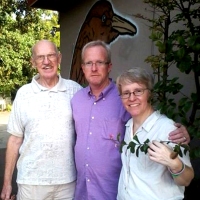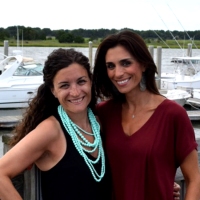
Your friend has cancer. Every genuine, heartfelt phrase you want to share sounds cliché and the more you delete and rewrite, the more your words become faded Hallmark sentiments. “How can I express to her how I’m feeling?”
Then you ask yourself, “What can I do? Should I call? No, she’s probably flooded with calls, but what if she thinks . . . ? Maybe I’ll pop in to check on her. No, what if her whole family . . . ? I’ll just text. But I need to do something. I’ll bring meals for the family. But what if someone already did?”
Struggling with these questions after you receive the news is a sign that you might be a truly supportive friend. Thoughtful words and gestures are a good beginning. Thoughtful awareness is an excellent delivery vehicle for your words and acts. (Related story: Whose Story Is It Anyway?)
Over the past fifteen years, nineteen friends and close acquaintances have faced cancer. Eight died. Geography, level of intimacy, and personal circumstances were factors in the extent of my connection during their treatment and recovery. While my involvement varied greatly, the struggle with words and acts was a constant. No matter how close I am to the person, physically or personally, I want the things that I say and do to make a difference, even if as simple as a fleeting smile.
I ambitiously set out to write a list of dos and don’ts for interacting with a friend who has cancer. After reaching out to friends with cancer stories, I realized the futility of a concrete list. The perfect thing for one friend is the worst for another. What did come from my conversations and ruminations is this list of guidelines, two of which I touched on above, all of which are relevant to caring for friends in any difficult circumstance.
1. Check in.
Let your friend know that you’re thinking about her. If you decide not to call because her lines are flooded or you’re not sure what to say, send a card, an email, or a text. If you’re struggling with the words, let that struggle go and use the words you find. Even a short text that borders on cliché can make a difference to a friend who is going through a tough time.
Keep checking in. Your friend will be flailing through waves of emotions, physical hardships, and practical concerns throughout her treatment and beyond. Even if you’re not one of the primary people taking care of her, check in regularly to let her know you’re thinking of her or to offer help. When treatment is complete, check in some more. The emotional and physical impact of cancer treatments can linger well beyond the last treatment date.
2. Tune in.
Be thoughtful and aware. Each cancer journey is unique. One friend explained: “the most important thing is to remember that every person is different, and we all have different problems / obstacles / challenges, which means there is no single appropriate response.”
Tuning in is listening. If you ask: “How are you feeling?” or “How are you doing?”, listen to the response.
Tuning in is also practicing thoughtful awareness of your friend’s support network, personality, and receptiveness.
If your friend has a family or community support network, communicate with that network so that you’re not duplicating or hindering the efforts of others. If there is no “built-in” support network, team up with other friends to create one.
Your friend’s personality is your guideline for interactions. Is she stoic or does she need a little extra boost? Is she all business or does she enjoy a laugh? A little levity can be helpful, but only if she’s ready for it. During a chemo treatment, the art therapist told my friend, “You’re back! Remember me?” My friend responded no. The therapist asserted, “Yes, you were here last week,” which wasn’t true. After the fourth insistence, I responded, “Well, she’s got that bald thing going on. They all look alike, don’t they?” The art therapist stood stunned. My friend belly-laughed, and she was ready for that.
How communicative is your friend? Is she open to sharing details about her treatment and feelings? Give your friend a chance to open up if she wants, but don’t pry her for details she’s not ready to share.
3. Be specific about what you can do.
Spell out it out. Don’t carelessly toss your friend an extra burden: “Let me know if you need anything.” Specify: “Can I mow your lawn this weekend?” or “I’m available to run errands for you for two hours on Friday.”
Your friend may not know what she needs; even if she does, she may not reach out. Tuning in and being specific can help. I asked two questions in one afternoon:
“Can I get you anything from Costco?”
“No, I’m good.”
Fifteen minutes later:
“I’m at Costco. Do you need any salmon?”
“Yes, that would be great. And can you check to see if they have any LaCroix?”
In the end, my friend requested five things. After tuning in to her habit of responding, “No, I’m good,” I called back with a specific question. This helped her think through and verbalize what she needed.
4. Be a thoughtful visitor.
Don’t pop in. During treatment, your friend may feel weary and not particularly social or presentable. Call ahead, make sure it’s a good time, and specify how long you will stay. “I can visit for fifteen minutes tomorrow if you like. I’ll bring ice cream.”
Don’t linger. Be cognizant of how your friend is feeling when you arrive. She may not be up for the visit after all, or she may be feeling anxious and need the company. One friend explained that the fifteen- to twenty-minute visits from a friend with a listening ear and comfort food were the best.
Don’t react. Avoid: “This is just dreadful!”, “I can’t believe this is happening to you!”, or “This is a piece of cake! You can do it.” On the other hand, be open to and don’t sugarcoat the emotions your friend is feeling. Her fear and anxiety are part of her story. If she wants to share those, listen but don’t try to qualify them.
Don’t give medical advice. Well-intended advice is often annoying, even disturbing. If you have information that might be helpful, don’t discuss it. Simply share the website or the book. It’s not your place to prescribe or recommend treatments. Your friend will discuss those with her doctors.
Don’t vent or ramble about inconsequential events. This can be insulting to the friend you’ve come to visit. Sure, she may want to talk about something other than her cancer, but let the communication flow from your friend to you. If conversation stalls, ask about other things in her life. “How is Timmy doing in school?” “Is Olivia still playing soccer?” Or, just sit and allow the quiet presence of companionship.
5. Remember the primary caregivers.
Reach out to the primary caregiver. Although that spouse, sibling, or friend may have meals, errands, chores, and visitation perfectly coordinated, he or she may need some additional support. Check in to find out and offer specific things you can do.
6. Don’t try to own her cancer.
Respect the boundaries. Friends often rush in to help a sick friend. Don’t let that become a competition or complication. Coordinate your efforts, avoid squabbles and pettiness. What you do for your friend and your struggle to find the right things to say and do are valid, but that story is the sub-plot. This is her cancer story. It’s her cancer. Not yours. Quiet support is often the biggest expression of love.
Thanks to my friends who shared their cancer stories and whose thoughts helped me cobble together some guidelines. Specifically, thanks to these ladies.

Jane with her dad and brother shortly after surgery

Mim and her husband, both of whom faced cancer

Patti with her two children

Lisa with her sister, who was with her every step of the way
Copyright © 2015 by Pennie Nichols, All Rights Reserved.


Hi Pennie-we connected on Instagram. I am a fellow blogger as well and I wanted to come on over and support your blog. This section struck me personally as I have had my own cancer journey this year. I am happy to report I am doing well and the cancer is gone however, the scars – emotionally and physically remain. This was a very nicely written piece.
Vivian
Thanks, Vivian. I look forward to visiting your blog. I’m glad you’re doing well despite the residual scars and pain the experience leaves.
Really good advice.
Thanks, Connie. The advice is only indirectly mine. It comes from friends with their own cancer stories.
Good advice!
these are wonderful guidelines. We are all–well, I speak for myself–always in a quandary about how much to do, how much to say, how little. My philosophy has always been, Something’s better than nothing. But something carefully targeted to the specific nees of a friend is even better.
What an insightful post about dealing with people who have cancer. I’ve dealt with several friends, a husband who had terminal cancer and my boyfriend. It isn’t easy. I related to the tip on not owning a person’s cancer as I’ve seen people do that.
I think it’s a natural tendency to personalize situations, but with awareness, we can learn to back off and allow the story or situation its rightful place. I published this post a few months ago on that topic. It’s tricky.